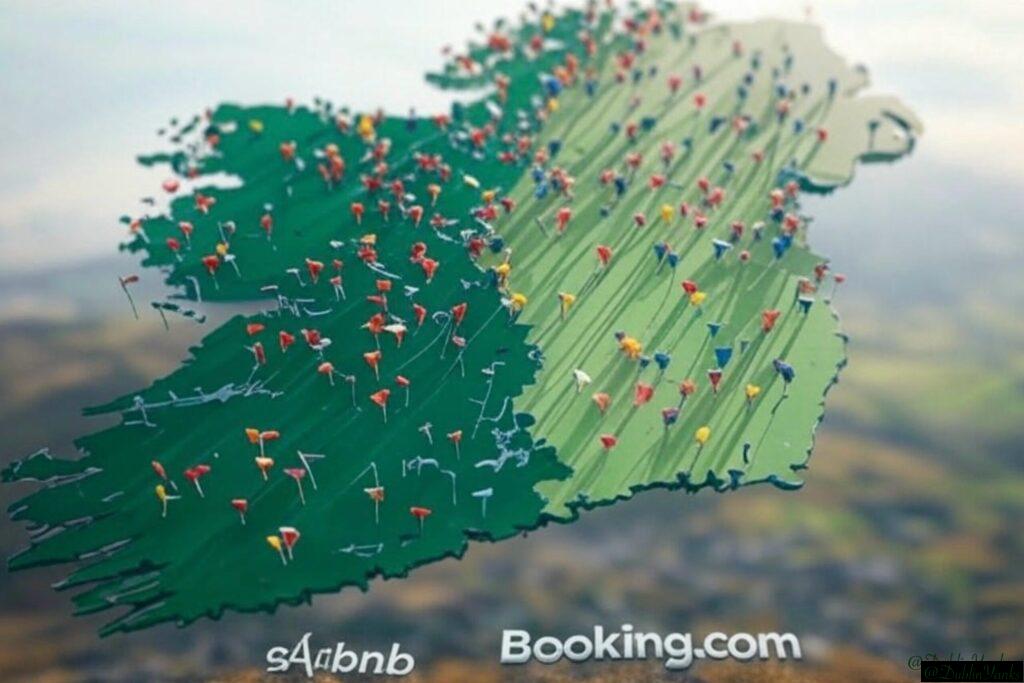Summary
Ireland’s new short-term rental rules, effective May 2026, require all properties rented for up to 21 nights to register with Fáilte Ireland. Aimed at easing the housing crisis, the law could shift 10,000 properties to long-term rentals. Hosts must display a registration number tied to an Eircode, with fines for non-compliance. Platforms like Airbnb face penalties for unverified listings. Travelers can expect safer, regulated stays but fewer options in popular spots like Dublin and Galway. Plan your 2026 Ireland trip early to secure a registered rental and enjoy the Emerald Isle’s charm with confidence.
Estimated reading time: 4 minutes
Hey there, fellow Yanks! Planning a 2026 getaway to Ireland? Whether you’re dreaming of a cozy Airbnb in Dublin or a seaside cottage in Galway, heads up: short-term rentals are getting a big shake-up. Ireland’s rolling out new rules that’ll change how you book your stay. Let’s dive into what the General Scheme of the Short Term Letting and Tourism Bill 2025, published February 6, 2025, means for your next Irish adventure. These changes are part of the new Short-Term Rental Rules.
Why Short-Term Rentals Are Changing in Ireland
Come May 2026, every short-term rental—think stays up to 21 nights—must register with Fáilte Ireland, Ireland’s tourism authority. Why? The government wants to free up about 10,000 properties for long-term housing to tackle Ireland’s housing crisis. According to Fáilte Ireland, 32,000 short-term rentals are listed online, and 10,000 could work as long-term homes.
“Tourism is the most significant indigenous enterprise sector, employing c. 220,000 people and generating almost €9 billion in revenue,” said Patrick O’Donovan, Minister for Tourism, on February 11, 2025. But, he added, the short-term rental boom over the past 15 years has squeezed long-term rentals, necessitating these short-term rental rules.
A Housing Fix with a Tourism Twist
Approved by the Cabinet on February 11, 2025, these short-term rental rules aren’t just about housing. They’re about making sure your stay is safe and legit, too. For us travelers, it means a more reliable booking process, even if there might be fewer rentals to choose from. Want to explore more about Ireland’s vibrant scene? Check out our Adventures in Dublin for tips on where to go!
How the New Short-Term Rental Rules Affect Your Trip
So, what’s the deal for booking a short-term rental? Hosts will need to show a unique registration number in their listings, whether on Airbnb or elsewhere. This number links to the property’s Eircode, a 7-character code that pinpoints addresses for compliance with planning, building, and fire safety rules. Local authorities will check Eircodes, especially in towns with over 10,000 people, where the rules kick in first. This process is a key element of the short-term rental rules.
Fáilte Ireland’s on the case, handing out €300 fines to unregistered hosts. If things escalate, non-compliant owners could face District Court penalties—up to €5,000 or 12 months in jail. Online platforms aren’t skating free either. They must verify registration numbers and remove dodgy listings, or risk fines up to 2% of their annual turnover. That’s serious cash for big players like Airbnb!
Short-Term Rental Rules: Fewer Options, More Quality
With fewer short-term rentals available, you’ll want to book early for that Dublin crash pad or Wild Atlantic Way hideaway. The upside? Registered properties will meet strict standards, so you’re less likely to end up in a sketchy spot. For more on navigating Ireland like a pro, swing by our Travel Tips for Yanks page. By following the short-term rental rules, you can ensure a quality stay.
Balancing Ireland’s Tourism and Housing Needs
These short-term rental rules tie into the EU’s Short Term Rental Regulation, adopted April 11, 2024, and effective May 20, 2026. They build on the 2019 Residential Tenancies (Amendment) Act, which required planning permission in Rent Pressure Zones but was tough to enforce. Now, Fáilte Ireland’s Single Digital Entry Point streamlines registration and shares data with the Central Statistics Office for Eurostat. Data’s kept for just 18 months after a property’s deregistered, following GDPR rules.
This isn’t only about fixing housing. The bill updates Ireland’s tourism game, ensuring you get a safe, regulated stay while supporting the Housing for All plan. It’s a win-win—safer rentals for you, more homes for locals.
Plan Your 2026 Irish Adventure Smart
Sure, short-term rental options might slim down, but Ireland’s magic is still all there. From the Cliffs of Moher to Dublin’s lively pubs, you’ll find plenty of registered spots to crash. Hosts can appeal registration refusals through independent officers, so the system’s fair. The Minister for Tourism will keep things on track, reporting to the EU Commission every two years. Keep these short-term rental rules in mind for a smoother trip.
For the full scoop, hit up the General Scheme of the Short Term Letting and Tourism Bill 2025 at enterprise.gov.ie. My advice? Book your 2026 Irish stay early—those dreamy rentals will go fast. Here’s to your Emerald Isle adventure, full of craic and a pint!
Discover more from Dublin Yanks: American Travel Tips for Visiting Ireland
Subscribe to get the latest posts sent to your email.
